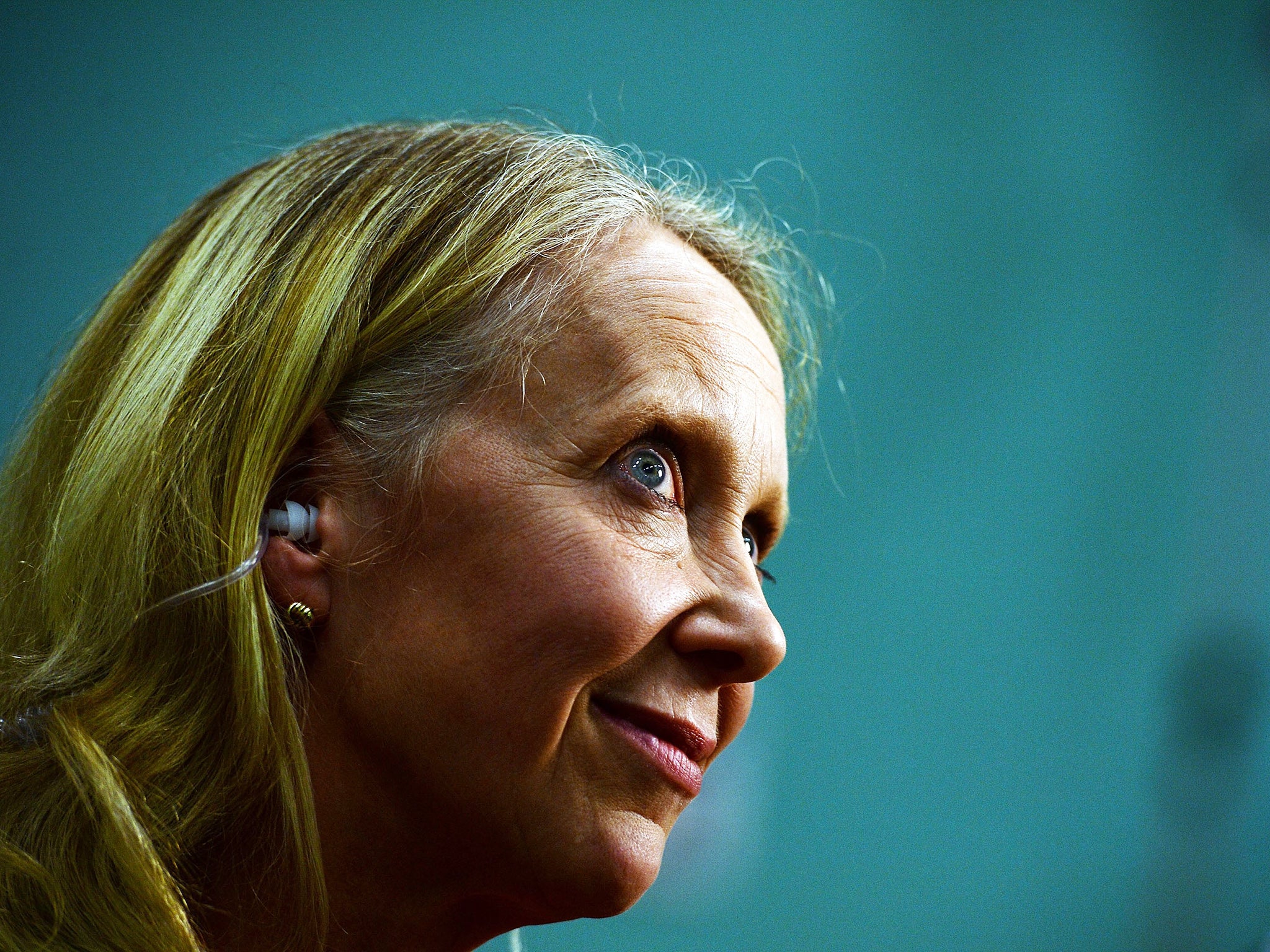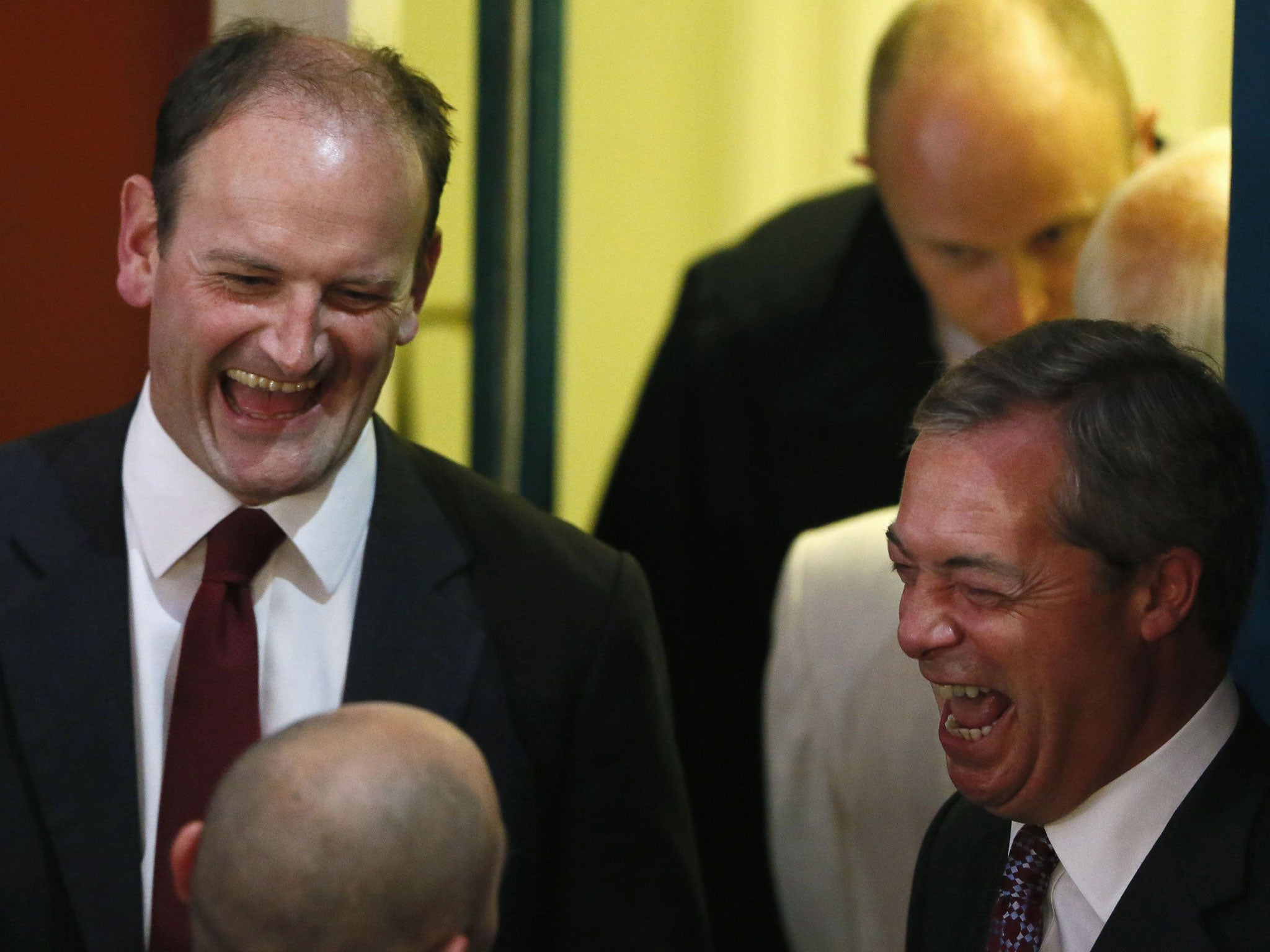Talking tough on immigration won’t help Labour or Tories win in May
Inside Westminster


Ukip’s triumph in Conservative Clacton-on-Sea and close second in the Labour heartland of Heywood and Middleton has inevitably provoked calls by politicians in the two biggest parties for them to toughen their stance on immigration.
“We will have more to say about immigration,” one senior Labour source said yesterday. The party tried to talk about the NHS during the Heywood and Middleton by-election, but voters clearly wanted to hear more about immigration. Meanwhile, David Cameron will come under pressure from Tory MPs to put flesh on the bones of his under-reported party conference promise to curb the EU’s freedom of movement rules when he negotiates a new deal for Britain.
Yesterday, Mr Cameron played the immigration card as he warned Tory supporters who switch to Ukip they risk installing Ed Miliband as prime minister – which would mean no EU referendum and “no action on immigration”.
There is no doubt that immigration, skilfully coupled with Europe by Ukip, has played a big part in the party’s rise and rise. But before Mr Cameron and Mr Miliband rush to judgement on the two by-elections, they should look at some important research to be published next month by the British Future think tank. It suggests the public is not as hostile to immigration as the headlines suggest. People are moderate rather than irreconcilable: most are neither “pro” nor “anti” immigration but want to manage the pressures it creates so that the country secures its benefits.
Most people reject the more extreme and polarising messages. They broadly welcome migrants who want to settle here, integrate and become “one of us”.
The report, “How to Talk About Immigration”, includes polling by ICM, which found that a majority (52 per cent) disagree with the statement that “the Government should insist that all immigrants should return to the countries they came from, whether they’re here legally or illegally”. One in four people does agree with it.
Among supporters of all parties, including Ukip, more people recognise the “pressures and benefits” of immigration and believe its level should be determined by economic interests than say it is either bad or good for the economy. The “pressures and benefits” view is backed by 74 per cent of Liberal Democrat voters, 70 per cent of Tory, 63 per cent of Labour, and 50 per cent of Ukip supporters (49 per cent of whom describe immigration as bad for the economy).
There is strong backing across the political spectrum for the view that immigration has an impact on jobs and public services, needs to be managed but should be handled without prejudice and racism – including among 69 per cent of Ukip voters. Some 63 per cent of the public believe it is better for Britain for migrants to put down roots, integrate and become “one of us”, while only 37 per cent think it would be better if they work here for a few years and then return home. A majority of Labour, Tory and Lib Dem supporters take the “one of us” view and, perhaps surprisingly, as many as 46 per cent of Ukip voters agree, while 54 per cent of them want migrants to return home after a few years.
Sunder Katwala, the director of British Future, told me: “Immigration might look like the toughest issue in British politics. But the worst mistake would be to believe the public is simply irreconcilable – and so to retreat from the fray. Our research shows that isn’t true. There’s a moderate majority out there if politicians engaged people seriously with the choices we face.”
Mr Katwala added: “Most people agree that immigration brings benefits as well as pressures. What they want is an honest conversation about how we manage that. And they feel they haven’t been offered one.”
He concluded: “The liberal response has been shrill and too quick to cry ‘racist’. It has dismissed voters’ worries about immigration and only appealed to people who are already onside. The Government has gone the other way, making tough promises [to reduce net migration] but failing to keep them. That has just undermined public trust.”
So it seems that anyone who thinks the British people are anti-migrant has got them wrong. They want to make immigration work and migrants to settle down and become “one of us”.
On Ukip’s victory lap in Clacton yesterday, Douglas Carswell appeared to recognise this. He said his new party needs to become one for “all Britain and all Britons”. But his moderate views on immigration are not shared by many of his new colleagues. They will struggle to disguise them in the run-up to the general election.

The British Future report may come as some relief to the Liberal Democrats, the only main party brave enough to talk up the benefits of immigration. In contrast, the growth of Ukip spooks the Tories and, increasingly, Labour. Mr Miliband has admitted the previous Labour government made mistakes on immigration but agonises over how far to go in saying so.
There is a danger that the other parties learn the wrong lessons from Ukip’s performance in the by-elections. They should base their response on public opinion rather than pub opinion.
Lib Dems ready to get back into bed with ‘nasty’ Tories
In public, the Liberal Democrat conference was dominated by attacks on the Conservatives. In private, Lib Dem ministers, MPs, candidates and activists spoke warmly about another coalition with... the Conservatives.
It is not as mad as it seems. As I reported on Tuesday, the Lib Dems have cooled on the idea of a coalition with Labour, even though the two parties have much in common on policy.
The Lib Dems know they are going to lose seats to Labour in the North. Attacking the Conservatives offers the Lib Dems the best hope of persuading left-of-centre voters to back them in the southern seats where the Lib Dems are up against the Tories.
Nick Clegg will ask Labour-leaning voters to put aside their anger at his decision to jump into bed with David Cameron and to vote tactically against the Tories. “It’s the nosepeg strategy,” explained one Lib Dem MP.
After similarly attacking the “nasty” Tories during the general election campaign, Mr Clegg will have a wee bit of explaining to do if he then renews his marriage of convenience.
However, there is no guarantee of a second Con-Lib coalition if the Tories are the largest party. Some senior Tories tell me the Lib Dems could be left “waiting at the church”, because the Tories might soldier on as a minority government in the hope of winning a majority in a second general election.
Join our commenting forum
Join thought-provoking conversations, follow other Independent readers and see their replies
0Comments